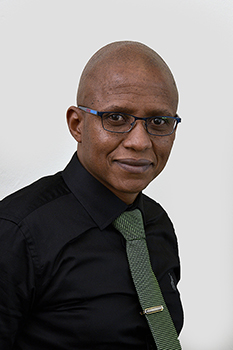Latest News Archive
Please select Category, Year, and then Month to display items
10 March 2022
|
Story Anthony Mthembu
|
Photo Unsplash
 The No Student Hungry team gearing up to start distributing food parcels to the selected students.
The No Student Hungry team gearing up to start distributing food parcels to the selected students.
The UFS is one of the many institutions of higher learning where food insecurity is an active issue. However, the
No Student Hungry Programme is one of the initiatives launched at the university to assist in fighting food insecurity at the institution.
The purpose of the programme
Since its inception in 2011, the initiative has assisted many students in acquiring a healthy meal. Additionally, the Food Environment Office also hands out food packages, so that students can continue to achieve academically. “We are trying to develop a healthy environment for students and make it easier for them to have a nice and healthy meal,” stated Annelize Visagie, who heads the Food Environment Office at the UFS. The Food Environment programme is spread out on all three campuses, each with its own facilitators. Furthermore, the programme mainly caters for students who are not funded by the National Student Financial Aid Scheme (NSFAS) but who are excelling academically. The abovementioned students apply for assistance online, and a list is then drawn up of students who receive assistance for the year.
Alternative solutions to keep the initiative running
On the Bloemfontein Campus, the No Student Hungry Programme will be catering for 200 students in the 2022 academic year, assisting them with a daily nutritious meal. Additional food parcels are also handed out to provide further assistance. “We give food parcels to the students on the list every Tuesday and Thursday at the Thakaneng Bridge,” Visagie highlighted. However, she argues that catering for the student population through this programme can be a challenge, as the demand for assistance is growing rapidly and the ability to assist is limited. The programme relies on partnerships and sponsors to assist the student body. In fact, the coordinators of the programme currently have a memorandum of understanding with Tiger Brands according to which they deliver around 100 food parcels for distribution.
In addition, the coordinators have put in place alternative measures to ensure that they can provide more food to students. “The
Kovsie Act Office, in partnership with the
Department of Sustainable Food Systems and Development, has started a food garden where healthy and nutritious produce are grown, in order to add value to the distribution,” she indicated. Although the programme can only assist to a point, students who are in desperate need of assistance are never turned away. In fact, the
Social Support Unit at Thakaneng Bridge usually assists students with food vouchers for a maximum of four days.
A commitment to teaching healthy eating habits
The programme is not only committed to curbing food insecurity, but also to ensuring that students have a healthy and balanced diet. As such, a booklet is being issued by the
Department of Nutrition and Dietetics in collaboration with the Department of Sustainable Food Systems and Development, which contains ways in which students can make a healthy meal using some of the ingredients offered in the food parcels.
“We want to teach students how to eat healthy in the cheapest way, because they don’t have a lot of money to buy expensive food products,” Visagie argued.
New Dean of Student Affairs appointed
2016-08-23

Pura Mgolombane, newly-appointed
Dean of Student Affairs at the
University of the Free State.
Photo: Charl Devenish
“Students must always remember that people are human beings before any other identity they may embody.”
This is the message to the students of the UFS campuses from Pura Mgolombane, newly-appointed Dean of Student Affairs at the University of the Free State (UFS) in August 2016. He has replaced Cornelia Faasen, who acted as Dean from December 2014 to July 2016.
Being part of the Kovsie community
Previously, he was part of the Kovsie family as Assistant Dean of Student Life and Leadership (2011-2013). Before that, he was the Diversity, Ethics, and Social Justice Manager at the University of the Witwatersrand from August 2013 to July 2016. Mgolombane said he is most excited to “observe and experience an inclusive culture” at the university.
“I am looking forward to being part of a team that creates sufficient conditions for every member of the Kovsie community to feel that they belong here; from Qwaqwa campus, to South campus, to Bloemfontein campus.”
Making sure humanity comes first
His primary focus will be “to create Humanising Student Lived Experiences”. I want to create conditions where students feel that their humanity matters, because it is in such conditions that students are likely to excel academically,” he said.
These conditions will be created through the introduction of programmes and activities known as pedagogies, namely the humanising pedagogy and the pedagogy of discomfort. “All of these pedagogies and frameworks will be contained and further clarified in the Dean of Student Affairs Strategy which will be finalised no later than December 2016.”
Overcoming challenges faced by students
Regarding the challenges facing UFS students, Mgolombane said that “it is only when all out humanity is affirmed that we are likely to find lasting peace.
“Those who are in power or privileged positions have a responsibility to be in solidarity with the marginalised groups in pursuit of Social Justice.”